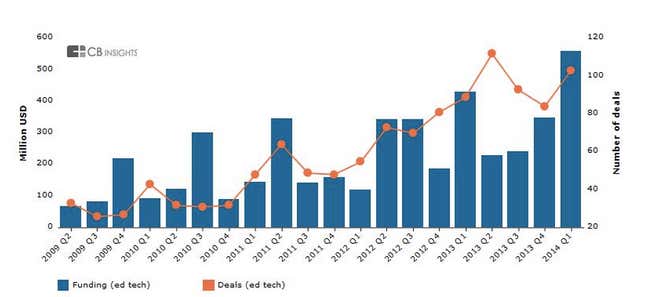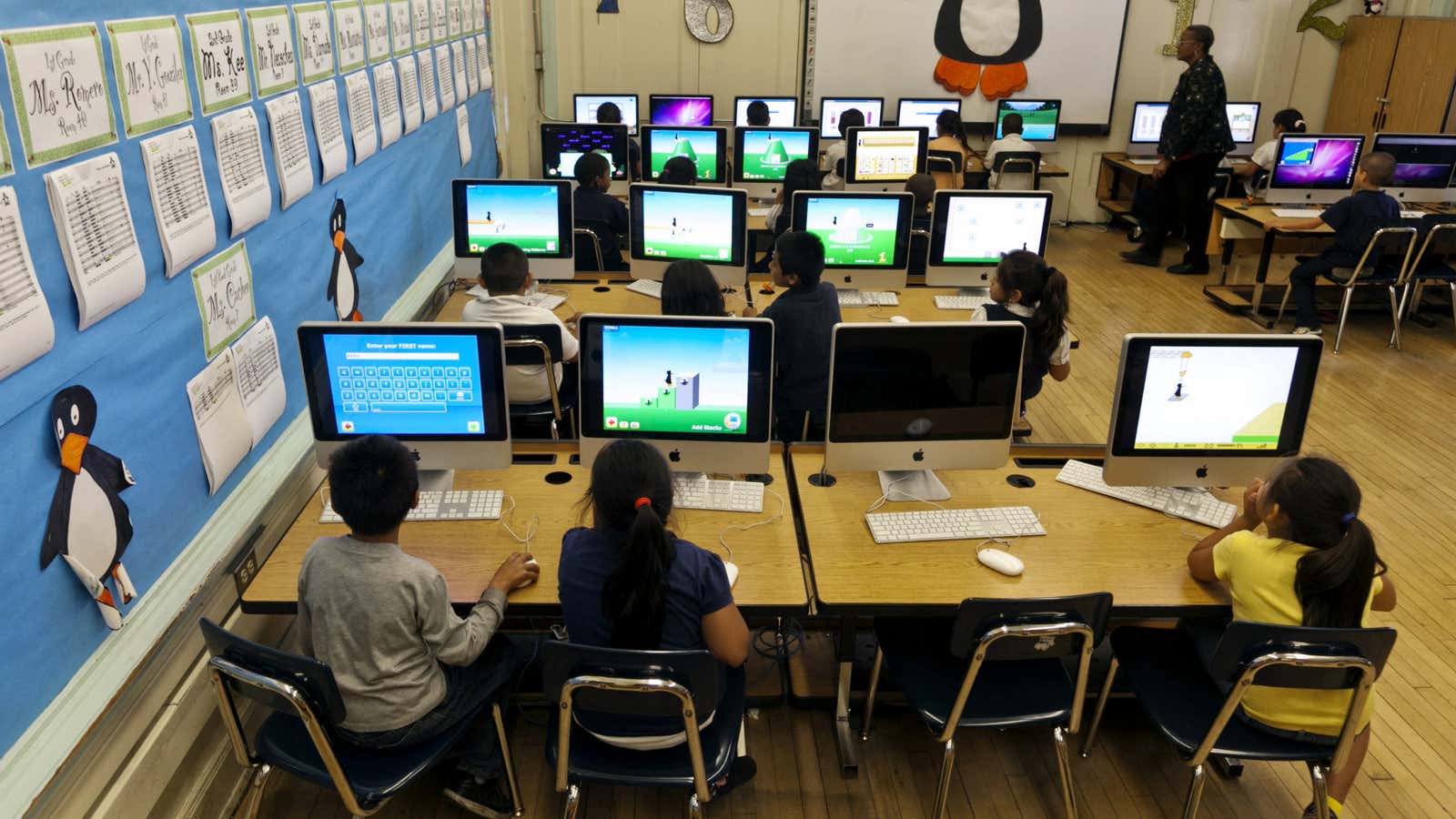Venture capitalists are pouring funding into new technologies for a trillion-dollar industry in the US that could be ripe for disruption: education.
Education technology startups attracted $1.25 billion in funding in 2013, according to analysis by CB Insights, and the boom has grown in 2014, with ed tech companies attracting nearly half that amount ($559 million) during the first quarter alone.

Some of the more notable ed tech companies to attract funding so far in 2014 include the video learning platform Kaltura, which counts Intel Capital as an investor; the language learning app, Duolingo, which has been backed by Kleiner Perkins, Caufield & Byers; and Renaissance Learning, an education assessment and analytics company, which secured $40 million from Google Capital.
It’s not just new startups that want a piece of the education pie. Rupert Murdoch’s News Corp has signaled a major push into education. Its Amplify division, run by the former New York City schools chancellor, Joel Klein, earlier this year launched an interactive digital curriculum aimed at middle school students, after releasing an education tablet last year. Pearson, which publishes the Financial Times, makes most of its money (pdf) in its education businesses. Yet the shift from print to digital (painful as it has already been for the news media) is only just beginning in education. States are in the process of shifting the billions in dollars they spend on textbooks into digital alternatives. It’s a similar story at the university level.
But why the sudden interest from Silicon Valley? The US education system looks broken. US primary school students are lagging their peers in Europe and Asia in math and science testing. College education is notoriously expensive and inflation in the cost of tuition is difficult to control. Companies complain that the US needs to do a better job educating its workers.
So for venture capitalists betting on education technology, one of America’s biggest problems could also be a huge opportunity.
